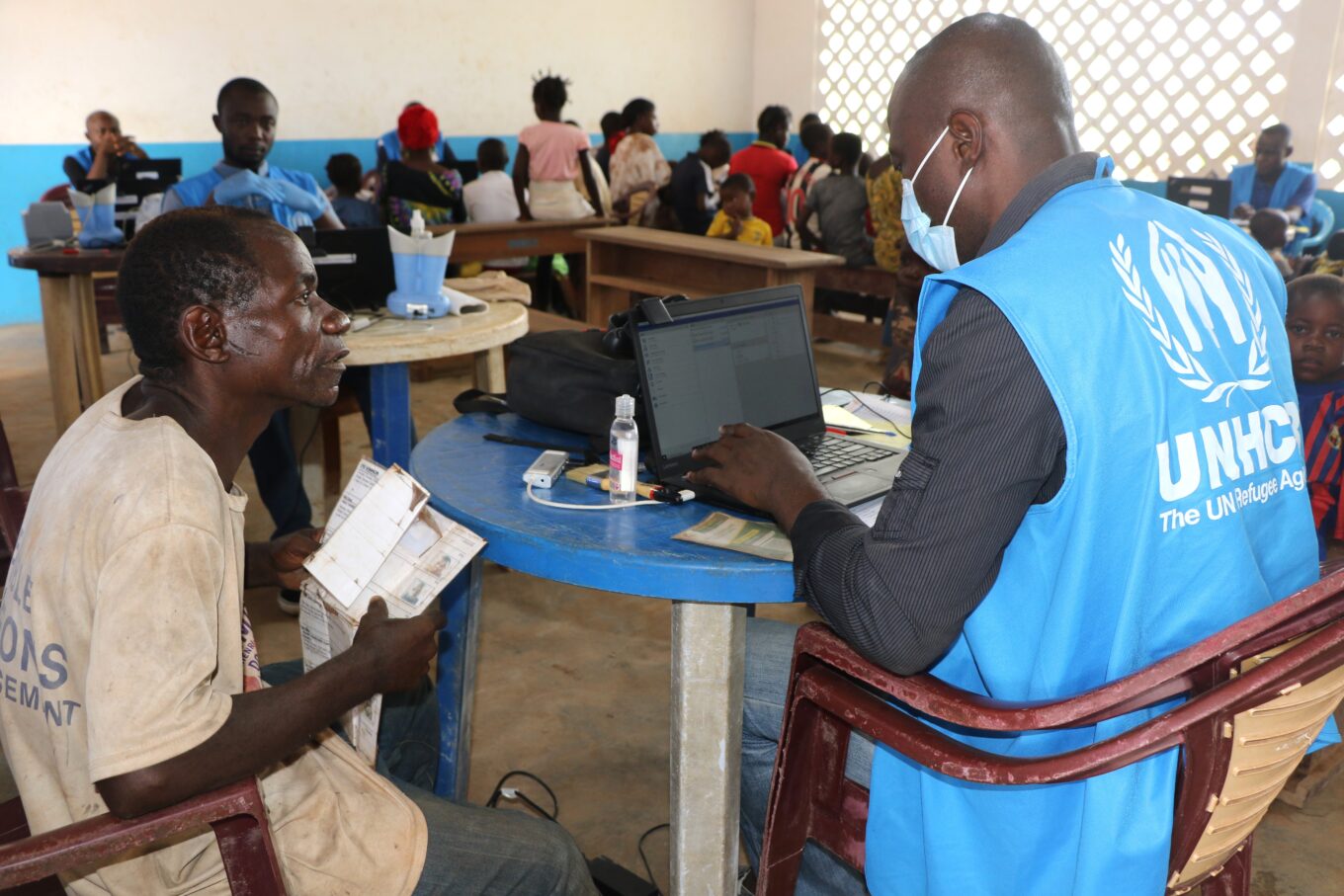
Together with the Government of the Republic of Congo, UNHCR is carrying out a verification exercise of all refugees and asylum-seekers in the country. © UNHCR/Armand Christ Kiyaloulou
The mandate of UNHCR, the UN Refugee Agency, is to protect and find solutions for forcibly displaced people. In the Republic of Congo, UNHCR supports the government in registering refugees – some of whom have lived in the country for several decades – as well as asylum-seekers who have arrived more recently.
Registration records are securely stored by UNHCR’s PRIMES system along with biometric data, including fingerprints and iris scans, for all aged five years and over. This data is used for issuing identification documents, protecting refugees against the risk of identity theft, and facilitating the provision of core relief items and food supplements for those with identified needs.
From time to time, a UNHCR country operation verifies all data currently held about the forcibly displaced population of a country and thus carries out a so called ‘verification exercise’. This involves updating the individual registration records of each refugee and asylum-seeker as well as collecting additional information when required. The Republic of Congo has a policy of including refugees and asylum-seekers among the host population and has no camps. Forcibly displaced people live in most parts of the country, including some of the most remote and rural communities. Reaching them can pose logistic challenges since it can take up to two days when traveling by road from Brazzaville or one day from the field office in Betou.
Since July 2023, the UNHCR operation in the Republic of Congo has been conducting a joint verification operation with the government. They aim to reach all 61,258 refugees and asylum-seekers registered in the proGres database and any who have never been registered previously. Biometric data has been captured for 90 per cent of the registered population. As of end September 2023, 48% of the target has been achieved, which includes almost 9,000 new biometric records collected.
The aim of this exercise, conducted alongside socio-economic surveys and the collection of biometrics, is twofold. First, it forms part of UNHCR’s strategy to integrate the most vulnerable refugees into government social protection programmes, such as the Unique Social Registry (RSU). The data will inform programmatic decisions and joint targeting approaches to further increase the inclusion of refugees and asylum-seekers in the national health and education services. Second, it will improve the quality of data on refugees and asylum-seekers, which UNHCR currently holds. This can strengthen advocacy efforts and the implementation of durable solutions for those we work with in the Republic of Congo.
The Government of Congo is leading the exercise through its technical agency, the Comité National d’Assistance aux Réfugiés (CNAR), with UNHCR’s full support and the participation of local implementing partners. This exercise will continue until December 2023 despite the constraints of limited resources and the logistic challenges. It involves an effective team from UNHCR, CNAR and local partner organizations. These 70 colleagues work across the entire country and have expertise in protection, development, and data entry.
The results of the verification will provide reliable statistics and better-quality data on refugees and asylum-seekers to prioritize and plan protection and solutions activities effectively. It will also identify opportunities to improve the Refugee Status Determination procedures to reduce the asylum backlog and facilitate the issuance of valid identity documents to refugees and asylum-seekers.
